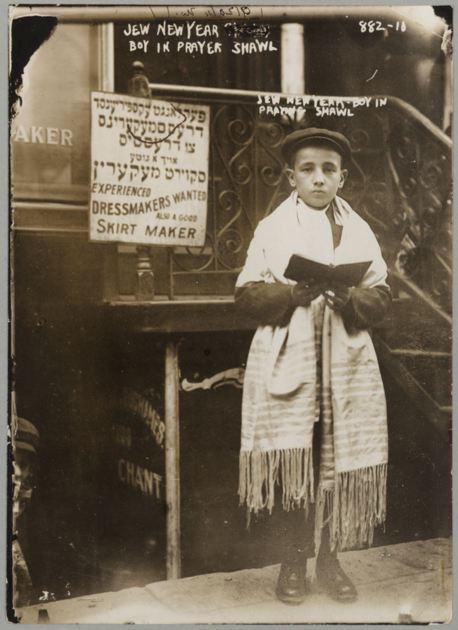
THE PSYCHOLOGY OF THE DAF Today’s Shiur Shabbos 143
Mareh Mekomos
Оъохо╝Ољ Оюо░ОеоИОдОЋо╣ОЪ ОЋо░ОЕоХОЂОюо╣о╝Ољ Оюо░ОеоИОдОЋо╣ОЪ, ОЌо▓ОюохОЉ ОћоиОЉо░о╝ОћохОъоИОћ ОЕоХОЂОъо░ОЎОЋо╝ОЌоИОЊ ОЉохо╝ОЎОЪ Оюо┤ОДо░ОўоиОао┤о╝ОЎОЮ ОЉохо╝ОЎОЪ Оюо┤Оњо░ОЊОЋо╣Оюо┤ОЎОЮ, ОљохОЎОаОЋо╣ ОЊо┤о╝ОЎОЪ ОЕоХОЂОЎо░о╝ОўоиОъохо╝Ољ ОЉохо╝ОЎОЪ Оюо░ОеоИОдОЋо╣ОЪ ОЋо╝ОЉохОЎОЪ ОЕоХОЂОюо╣о╝Ољ Оюо░ОеоИОдОЋо╣ОЪ? ОљоИОъо░ОеОЋо╝ ОюОЋо╣: Ољо┤ОЮ ОўоИОъохОљ ОЌо▓ОюохОЉ ОћоИОљо┤ОЕоИо╝ОЂОћ ОЕоХОЂОюо╣о╝Ољ Оюо░ОеоИОдОЋо╣ОЪ, ОЕоХОЂОЊоио╝ОЮ ОъоиОњохо╝ОцоИОфоИОћо╝ ОўоИОъохОљ, ОЎо░ОўоиОъохо╝Ољ ОЌо▓ОюохОЉ ОћоиОЉо░о╝ОћохОъоИОћ
Rabbi Akiva said: It is an a fortiori inference that this is incorrect: Just as a woman’s milk, which is intended only for young children, is considered a liquid and renders food susceptible to ritual impurity both if the milk is expressed volitionally and if it is expressed unvolitionally, the milk of an animal, which is intended for both young and old, is it not logical that it should render food susceptible to ritual impurity, both if it was expressed volitionally and if it was expressed unvolitionally? They said to him that this a fortiori inference can be refuted in the following way: If a woman’s milk renders food susceptible to ritual impurity even when the milk was expressed unvolitionally, as the status of the blood of her wound is also that of a liquid that renders food susceptible to ritual impurity, that does not mean that the milk of an animal renders food susceptible to ritual impurity
Rashi:
ОЊОЮ ОъОњОцОфОћ - ОЕОю ОљОЕОћ ОљОЮ ОаОњОБ ОеОњОюОћ ОљОЋ ОЎОЊОћ ОЋОЏОю ОЌОЉОЋОеОћ ОЕОЎОдОљ ОъОъОаОћ ОЊОЮ ОЏОЊОљОъОе ОЉОцОеОД ОЊОЮ ОћОаОЊОћ (ОаОЊОћ ОЊОБ ОЏОћ:) ОЊОЮ ОЌОюОюОЎОЮ ОЊОћОЎОЎОаОЋ ОЊОЮ ОћОеОЋОњ ОДОеОЋОЎ ОъОЕОДОћ ОЕОаОљОъОе ОЋОЊОЮ ОЌОюОюОЎОЮ ОЎОЕОфОћ ОЋОЊОЮ ОъОњОцОфОЋ ОъОцОеОЕ ОћОфОЮ ОЊОЊОЮ ОЌОюОюОЎОЮ ОћОЋОЎ ОЊОъОћ ОюОЎ ОДОўОюОЎОћ ОЏОЋОюОЎОћ ОъОћ ОюОЎ ОДОўОюОЎОћ ОцОюОњОљ ОЋОЌОюОЉ ОЏОЊОЮ ОъОњОцОфОЋ ОЊОЊОЮ ОаОбОЏОе. ОЋОаОбОЕОћ ОЌОюОЉ ОЋОЊОЮ ОъОњОцОфОћ ОАОфОъОЎОћ ОЕОюОљ ОюОеОдОЋОЪ ОћОЋОљ ОЋОўОъОљ
Niddah 9a
ОЏОЕОфОъОдОљ ОюОЋОъОе ОюОЊОЉОеОЎ Ое"Оъ ОЊОЮ ОаОбОЏОе ОЋОаОбОЕОћ ОЌОюОЉ ОюОЊОЉОеОЎ ОеОЉОЎ ОЎОЋОАОЎ ОЋОеОЉОЎ ОЎОћОЋОЊОћ ОЋОеОЉОЎ ОЕОъОбОЋОЪ ОљОЉОеОЎОћ ОъОфОцОеОДОЎОЪ ОЋОљОЎОЪ ОаОцОЕОћ ОЌОЋОќОеОф ОбОЊ ОбОЕОеОЎОЮ ОЋОљОеОЉОб ОЌОЊОЕ
The Gemara discusses the reasoning of each opinion: When you analyze the matter you will find that one must say that according to the statement of Rabbi Meir the case is that menstrual blood spoils and becomes milk. Therefore, it follows that this status continues for as long as she is nursing. By contrast, according to the statement of Rabbi Yosei and Rabbi Yehuda and Rabbi Shimon, her limbs become dislocated and her spirit, i.e., her full strength and her regular menstrual cycle, does not return to her until twenty-four months have passed.
Ancient Greeks also believed that menstrual blood turned into breastmilk. (Fildes V. Wet nursing: A history from antiquity to the present. New York City, USA: Basil Blackwell Inc; 1988). Unlike modern times where change is rapid, ancient medicine was based on traditions that were hundreds if not thousands of years old. Consider the theory of four humours that persisted in medicine from Greek and Talmudic times through the middle ages.
Arukh Hashulkhan 494:5
ОЋОњОЮ ОъОцОаОЎ ОЕОбОю ОцОЎ ОъОфОЪ ОфОЋОеОћ ОаОфОаОЕОљОЋ ОюОъОбОюОћ, ОЋОаОфОћОцОЏОЋ ОъОўОЋОъОљОф ОъОдОеОЎОЮ ОюОўОћОеОф ОћОДОЋОЊОЕ. ОюОЏОЪ ОљОЋОЏОюОЎОЪ ОЌОюОЉ ОЕОаОфОћОЋОЎОф ОъОЊОЮ, ОЏОЊОљОъОеОЎОаОЪ: ОЊОЮ ОаОбОЏОе ОЋОаОбОЕОћ ОЌОюОЉ. ОЋОЎОЕ ОЉОќОћ ОеОъОќ ОЕОћОЊОЎОЪ ОаОфОћОцОџ ОюОеОЌОъОЎОЮ.
Note the Juxtaposition of Shavuous to the prohibition of meat and milk
Shemos 23:19
ОеохОљОЕо┤ОЂоЌОЎОф ОЉо┤о╝ОЏо╝ОЋо╝ОеохОЎоЎ ОљоиОЊо░ОъоИоБОфо░ОџоИоћ ОфоИо╝ОЉо┤оЋОЎОљ ОЉохо╝оќОЎОф ОЎо░ОћОЋоИоБОћ Ољо▒Оюо╣ОћоХоЉОЎОџоИ Оюо╣ойОљоЙОфо░ОЉоиОЕохо╝ОЂоЦОю Оњо░о╝ОЊо┤оќОЎ ОЉоио╝ОЌо▓ОюохоЦОЉ Ољо┤Оъо╝ойОЋо╣ОЃ
The choice first fruits of your soil you shall bring to the house of the LORD your God. You shall not boil a kid in its mother’s milk.
Kliy Yakar
ОюОљ ОфОЉОЕОю ОњОЊОЎ ОЉОЌОюОЉ ОљОъОЋ...ОЋОДОеОЋОЉ ОюОЕОъОЋОб ОЕОъОдОЋОћ ОќОЋ ОћОЎОљ ОъОбОаОЎОЪ ОљОЎОАОЋОе ОЏОюОљОЎОЮ ОЋОбОеОЉОЋОЉ ОћОЏОЌОЋОф ОЏОЎ ОЎОЊОЋОб ОЕОЉОЕОе ОћОбОЋОЉОе ОаОЋОюОЊ ОъОЪ ОћОЊОЮ ОЕОю ОћОаОДОЎОЉОћ ОћОљОЊОЋОЮ ОћОъОЋОюОЎОЊ ОЏОю ОљОЋОЊОЮ ОЏОЎ ОъОЕОЮ ОъОДОЋОеОЋ, ОЋОЏОЪ ОЌОюОЉ ОћОЉОћОъОћ ОњОЮ ОЏОЪ ОъОЪ ОћОЊОЮ ОъОДОЋОеОЋ ОЏОЎ ОћОЊОЮ ОаОбОЏОе ОЋОаОбОЕОћ ОЌОюОЉ, ОЋОюОцОЎ ОќОћ ОъОЪ ОЊОЮ ОћОЉОћОъОћ ОЎОдОљ ОЉОЕОе ОћОбОЋОЉОе

 Previous
Previous
